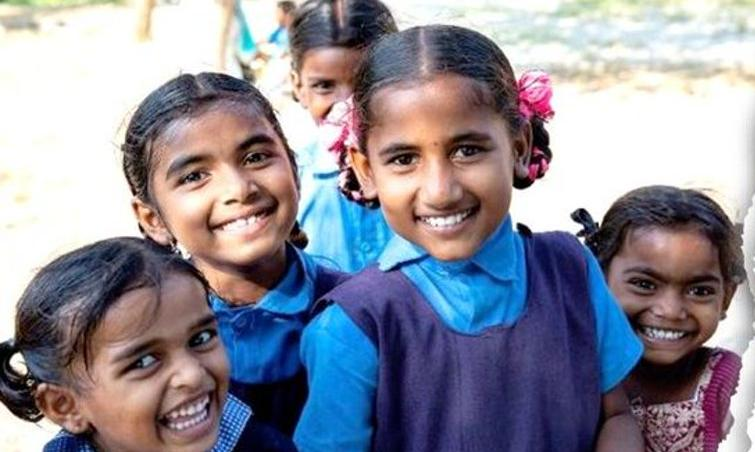A Decade of Progress and Challenges in the Telangana's Educational Landscape

HYDERABAD: Since its formation in 2014, Telangana has undergone significant changes in its education sector, marked by both commendable advancements and severe challenges.
One of the most tragic incidents occurred in 2019 — the Intermediate results fiasco. Nearly 9.74 lakh students were affected when the Telangana State Board of Intermediate Education (TSBIE) mishandled the exam results, leading to widespread inaccuracies. Approximately 3.28 lakh students initially failed, causing severe distress and over 25 student suicides. The errors were attributed to Globarena Technologies, the firm responsible for processing the results. The re-evaluation process revealed significant discrepancies, with over 1,100 students passing after re-verification. This crisis led to statewide protests and demands for accountability, highlighting severe flaws in the educational administration.
The TS Public Service Commission (TSPSC) faced significant challenges with delays and paper leaks. In 2020, the question papers for the Village Revenue Officers (VRO) exam were leaked, causing the exam to be cancelled and rescheduled. This incident led to widespread protests, and a tragic case involved a 17-year-old Pravalika Marri who allegedly committed suicide over these delays.
The then IT minister K.T. Rama Rao's false comments about her not even having applied for the exam and dismissing it as a case of ‘love failure’ instead of taking responsibility, further escalated the controversy. The backlash included strong reactions from political leaders who demanded stringent measures to prevent such occurrences in the future.
Similarly, the SSC exams experienced instances of paper leaks, including subjects like Hindi and English. These leaks led to students questioning the credibility of the state's examination systems and causing significant distress among students, parents, and the education department.
The past decade also saw numerous protests and controversies regarding fee hikes in private schools and colleges. Parents and student bodies frequently opposed these hikes, arguing that they placed an undue financial burden on families. The government's attempts to regulate fees and ensure affordability met with varying degrees of success but not enough to fix tensions between educational institutions and stakeholders.
Several universities and colleges faced issues related to infrastructure, faculty shortages, and administrative inefficiencies. These problems often resulted in disruptions to academic schedules and impacted the quality of education. Despite efforts to address these challenges, many institutions continued to struggle with providing a conducive learning environment for students.
In an effort to expand medical education, the Telangana government significantly increased the number of medical seats from around 1,100 in 2014 to over 2,850 by 2023. However, this expansion was not matched by necessary improvements in infrastructure, leading to criticisms about inadequate facilities, faculty, and equipment in many medical colleges. The rapid increase aimed to accommodate more students but often compromised the quality of education and training.
A notable positive development was the introduction of a breakfast meal programme for students in government schools. However, mid-day meal workers throughout complained of not having received enough compensation or funds to buy basic raw materials for the existing mid-day meal before such a 'CM Breakfast Scheme' was announced.
During his tenure, R.S. Praveen Kumar transformed the gurukul and social welfare schools, making substantial improvements in infrastructure and educational outcomes. His efforts included introducing innovative teaching methods, improving residential facilities, and ensuring a holistic development approach for students from marginalised communities. The transformation has been widely recognised and praised for uplifting the standards of education and providing better opportunities for disadvantaged students.
The Degree Online Services of Telangana (DOST) system was introduced to streamline college admissions and ensure a more transparent process, allowing students to apply to multiple colleges through a single platform, simplifying the admission process. Additionally, initiatives like the Choice Based Credit System (CBCS) and the establishment of Entrepreneurship Development Cells aimed to enhance the quality and relevance of higher education.
Telangana made significant strides in incorporating technology into education by introducing digital classrooms in many government schools, especially during the Covid-19 pandemic. The initiative aimed to provide students with access to modern educational resources and bridge the digital divide.
The Mana Ooru Mana Badi programme was launched to improve school infrastructure comprehensively. The initiative included constructing new classrooms, digital classrooms, dining halls, and providing essential amenities like drinking water, electricity, and toilets. The government allocated Rs 3,497.62 crore to upgrade 9,123 schools. This extensive infrastructure development aimed to enhance the learning environment and overall educational experience for students, which is yet to reach fruition.

